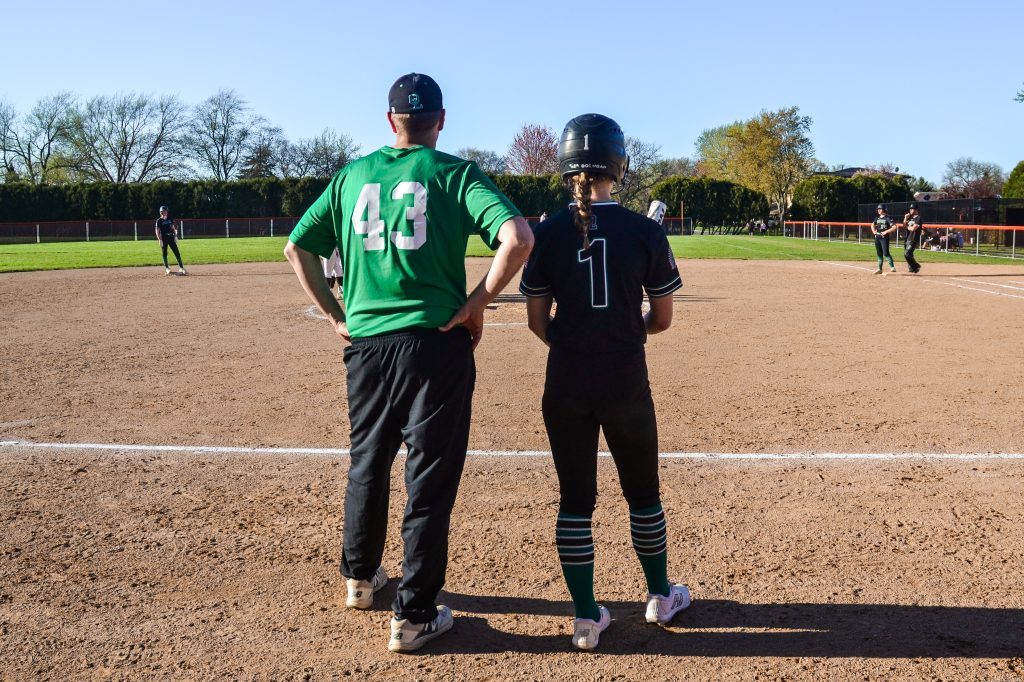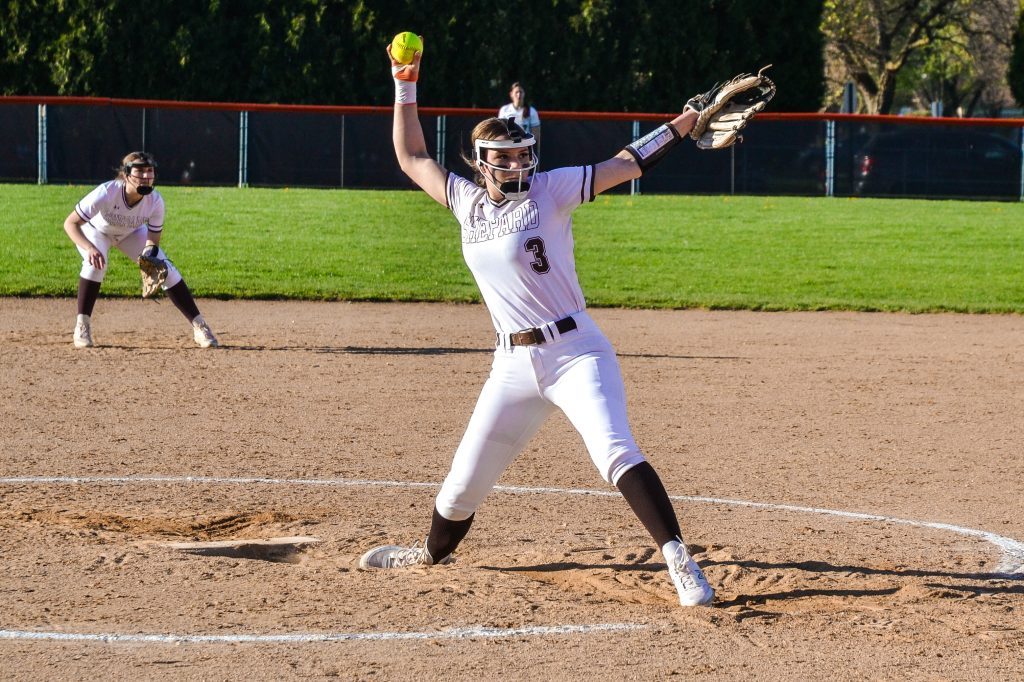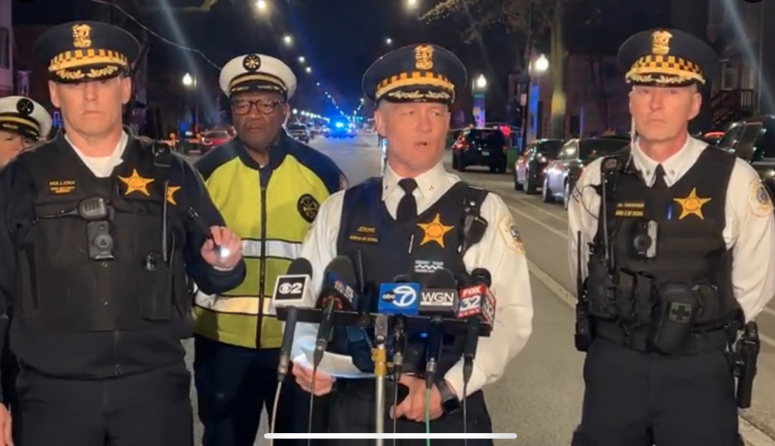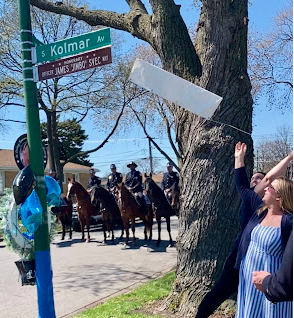
CAPITOL RECAP: Redistricting committees scheduled amid Friday night map release
By Capitol News Illinois
SPRINGFIELD – House and Senate redistricting committees will hold a series of public hearings this week on a proposed new set of legislative maps that Democrats released late Friday, despite the fact that official census data won’t be available until later this year.
The Democrats’ decision to release the maps after 7:30 p.m. Friday, combined with the fact that the majority party also has not divulged all of the data sources they used to draw the maps, drew sharp criticism from Republicans, who called on Gov. JB Pritzker to veto the maps if they pass.
The proposed new maps establish new lines for the General Assembly’s 59 Senate districts and 118 House districts, an action the Illinois Constitution requires lawmakers to take at least once every 10 years following the decennial census.
Instead of waiting on census data which is delayed this year, Democrats have said they are relying on other data sources, including the Census Bureau’s American Community Survey, which uses sampling to estimate population shifts on an ongoing basis.
Immediately following the release of the proposed maps, a group of 24 voting rights advocacy groups, including the League of Women Voters Illinois, the Better Government Association and Common Cause Illinois, issued a joint statement urging lawmakers to reject maps based on ACS data.
Those groups argued that instead of using incomplete or inaccurate data, lawmakers should ask the Illinois Supreme Court for relief from the state constitutional deadlines as the states of California and Oregon did.
Democrats, however, have defended the process, arguing that their proposed maps incorporate input they received following an extensive series of public hearings held over the last few months. They also said the maps are designed to ensure fair representation across demographic lines in accordance with the Voting Rights Act.
In addition to the ACS data, Democrats have also said they would use additional data sources to obtain accurate counts, but so far they have not disclosed what those data sources are, despite assurances that they would make all the data public.
In a separate news conference Monday, Republicans blasted the proposed maps as a blatant attempt to ensure Democrats retain their supermajorities while undercounting minority populations.
* * *
REDISTRICTING SUPREME COURT: Illinois Democrats, who control all three branches of government, have some incentive to redraw the boundaries for the five Illinois Supreme Court districts this year as well after a Democratic justice was defeated in a retention bid in the 3rd Judicial District in November.
House Minority Leader Jim Durkin, of Western Springs, said Monday he expects the Democrats in the General Assembly will seek to redraw at least the 3rd District in the northwestern part of the state, spanning from Joliet to the Quad Cities.
“Quite frankly, if they don’t change (the 3rd) district, Republicans win and the balance of power would go to Republicans,” Durkin said at a virtual news conference. “That’s why there is going to be, I imagine, within the next few weeks, some type of map – and it could be this week – that is going to redraw that 3rd Supreme Court District to make it more appealing to Democrat voters.”
A judicial remap would be the first for the state since the early 1960s.
Unlike with the legislative district maps, there are no set deadlines in state law or the Illinois Constitution for redrawing Illinois Supreme Court districts.
The five Supreme Court districts contain seven total justices, with three justices from Cook County, which encompasses the 1st District, and one justice each from the remaining four districts. Those districts are identical to the state’s five appellate districts as well, meaning a remap would affect them both.
Justices from the 1st and 3rd districts ran as Democrats, which have a majority on the court.
The 2nd District, which encompasses the collar counties and counties along the Wisconsin border, as well as the 4th and 5th Districts, which are downstate, are represented by justices who ran as Republicans.
Spokespeople for House Speaker Emanuel “Chris” Welch and Senate President Don Harmon did not immediately respond to requests for comment as to whether a judicial remap is in the works.
* * *
PRISONER REVIEW BOARD: Republican senators on Monday raised concerns about four Prisoner Review Board members who have continued to serve for almost two years despite not being confirmed by the Senate Executive Appointments Committee, a constitutional requirement in the state.
In a news conference in Springfield, Republican Sen. Steve McClure, of Springfield, said Gov. JB Pritzker, who initially appointed the members in 2019, is using “shady practices” in allowing the appointees to serve unconfirmed, keeping the Senate from fulfilling “one of its essential obligations.”
McClure was joined at the conference by fellow Republican members of the Senate Executive Appointments Committee, Sen. Jason Plummer, of Edwardsville, and Sen. Terri Bryant, of Murphysboro.
The PRB, an independent 15-person body appointed by the governor, imposes release conditions for incarcerated individuals being released from prison.
The board has the authority to grant, deny or determine conditions of parole and notify victims and families when an inmate is going to be released from custody. The board also makes recommendations for clemency petitions to the governor.
The appointees in question include Aurthur Mae Perkins, Joseph Ruggiero, Oreal James and Eleanor Wilson. All four were appointed members of the Prisoner Review Board by Pritzker in March and April of 2019, but were never confirmed by the Senate.
Pritzker’s press secretary Jordan Abudayyeh said the Republicans were “grandstanding” by calling the news conference.
“For the Prisoner Review Board to be able to undertake its difficult and complex mission, members must be able to make parole determinations entirely independently,” she said in an email statement. “Subjecting members to political grandstanding sets a new and dangerous precedent for this constitutional function.”
“The members’ appointments and votes are transparent, and their meetings are open to the public. Additionally, the Senate Executive Appointments Committee sets the schedule for confirming gubernatorial appointees, and it is routine practice for appointees to be withdrawn so that the Senate has more time to consider the appointments,” she added.
McClure said Pritzker is “skirting a constitutional requirement” and he said he believes the Executive Appointments Committee is allowing it to happen.
* * *
FED REPAYMENT: Gov. JB Pritzker and other Democratic leaders announced Thursday, May 20, that they have agreed to a plan to repay the money Illinois borrowed from the Federal Reserve during the COVID-19 pandemic before the end of the next fiscal year.
Illinois borrowed $3.2 billion from the Fed through a program that Congress established under the Coronavirus Aid, Relief and Economic Security, or CARES Act to help states that saw dramatic declines in revenue during the peak of the pandemic. Of that, roughly $2 billion remains outstanding.
That money was to be repaid in three installments by December 2023. But in a news release, Pritzker said the state’s recent economic performance and stronger-than-expected revenue growth will allow it to pay off the loan early, saving the state about $100 million in interest charges.
But even without the debt repayment cost, Illinois faces a number of significant fiscal challenges over the next year.
During a news conference earlier in the day, House Majority Leader Greg Harris, D-Chicago, said the proposed budget as it stands now is about $1.3 billion out of balance and that lawmakers are faced with a choice of spending cuts, revenue enhancements or a combination of both in order to get through the year.
Last week, the Governor’s Office of Management and Budget revised its revenue estimates for the current fiscal year upwards by nearly $1.5 billion and by $842 million for the upcoming fiscal year.
Pritzker attributed that improved performance to state programs during the pandemic that targeted sectors of the economy such as small businesses and child care providers, as well as effective cash management by Comptroller Susana Mendoza.
The statement from the governor’s office noted that final income tax payments received earlier this week, along with stronger year-to-date receipts in the state’s main revenue sources – individual and corporate income taxes and sales taxes – will allow the remainder of the repayment to occur beginning in the next several months.
Earlier, officials had hoped to use a portion of the $8.1 billion in fiscal relief Illinois will receive through the recently-passed American Rescue Plan to pay off the loans, but the Treasury Department has issued interim rules that prohibit the use of those funds to pay off state debt.
* * *
UNIONIZATION AMENDMENT: The Illinois Senate on Friday, May 21, passed and sent to the House a proposed constitutional amendment that would establish a fundamental right of employees to unionize and engage in collective bargaining.
Sen. Ram Villivalam, D-Chicago, lead sponsor of the measure in the Senate, said the amendment is a response to the relatively stagnant wages most workers have seen since the 1970s when union membership nationally began to decline.
The proposed amendment would add a section to the Illinois Constitution’s Bill of Rights stating, “Employees shall have the fundamental right to organize and to bargain collectively through representatives of their own choosing for the purpose of negotiating wages, hours, and working conditions, and to protect their economic welfare and safety at work.”
It would go on to say that no laws could be passed that diminish workers’ rights to organize, including any state law or local ordinance “that prohibits the execution or application of agreements between employers and labor organizations that represent employees requiring membership in an organization as a condition of employment.”
That is a reference to so-called “right-to-work” laws that began proliferating in the post-World War II era that prohibit any agreements requiring union membership as a condition of employment.
During discussion on the measure Friday, Villivalam said it would have minimal impact on private-sector workers because the National Labor Relations Act governs organizing and collective bargaining in the private sector. He said the intent was to protect the right to collective bargaining that is already established under the Illinois Public Labor Relations Act and the Illinois Education Labor Relations Act.
The measure – Senate Joint Resolution Constitutional Amendment 11 – passed the Senate by a vote of 49-7, with 11 Republicans joining Democrats in supporting it. It now goes to the House where it will need a three-fifths majority, or 71 votes, to pass. If it does, it would then be up to Illinois voters to approve during the November 2022 general election.
* * *
TILLMAN OPINION: The Illinois Supreme Court threw out a lawsuit Thursday, May 20, that was brought by the head of a libertarian think-tank that challenged the state’s use of bonds to pay back state debt.
The decision marks the end of the legal battle initiated by Illinois Policy Institute Chairman and CEO John Tillman against the state’s use of more than $14 million in bonds to repay pension obligations and other state debt.
Tillman claimed the state laws in 2003 and 2017 authorizing the bonds were unconstitutional because the bonds were not issued for “specific purposes,” within the meaning of the state constitution.
The Illinois Constitution’s revenue article contains a section that provides the state can incur debt for “specific purposes.” Tillman argued that, within the meaning of this constitutional provision, “specific purposes” refers exclusively to projects dealing with capital improvements, such as roads, buildings, and bridges.
He asked the court to declare the bonds invalid and block the state from making any future payments on them.
The court ruled unanimously that Tillman could not bring this case because of his delay in filing his 2019 lawsuit, years after the 2003 and 2017 laws issuing the bonds were passed.
The justices also decided that it is “patently obvious that the State will suffer some prejudice if relief is granted at this extremely late stage.”
In a written statement, Tillman said he is disappointed in the Illinois Supreme Court’s ruling and is evaluating his options as to how to proceed from here.
A spokesperson for Pritzker said in a statement that the governor’s administration is pleased with court’s decision that ends Tillman’s “frivolous” lawsuit.
* * *
MENSTRUAL PRODUCTS IN SCHOOLS: A bill that would require schools to provide free menstrual hygiene products in all bathrooms for grades 4 through 12 passed the Illinois House and will now be up for consideration in the Senate.
House Bill 156, sponsored by Rep. Barbara Hernandez, D-Aurora, passed on a 68-43 vote Thursday, May 20.
Hernandez said in some cases that there are students who are missing school because they are unable to access menstrual hygiene products or don’t feel comfortable going to a nurse’s office or asking a teacher for a pad or a tampon.
The menstrual hygiene products would be free to the students and be available during the regular school day.
A similar bill, House Bill 3215, was signed into law in 2017. But Hernandez said her bill is necessary because school districts are not enforcing the existing law.
The fiscal note for the 2017 bill stated that this measure would not have a financial impact on the Illinois State Board of Education, but it would instead have a fiscal impact on school districts. The specific amount was not known at the time.
Rep. Avery Bourne, R-Morrisonville, said school districts are already doing this and the bill “takes away local control” and is “a blanket mandate that will not only be expensive, but reach beyond what the amendment even intends to do.”
Rep. Andrew Chesney, R-Freeport, said he was mostly concerned about the language requiring the products to be available in all bathrooms, which would include male bathrooms.
Hernandez said this is necessary so that male friends can help out their classmates in emergency situations. Rep. Kathleen Willis, D-Addison, added that this is also a more inclusive approach to protect transgender youth.
* * *
MARIJUANA LICENSING: A bill aimed at allowing more people from distressed communities to get into the lucrative recreational marijuana business is on its way to the House floor as lawmakers head into the final days of the spring 2021 session.
House Bill 1443 is a follow-up to the landmark bill that passed in 2019 legalizing and regulating the sale and use of recreational marijuana. Under that law, dispensaries that were already licensed to sell medical marijuana immediately became eligible to apply for recreational-use licenses while a number of other licenses were set aside for so-called “social equity” applicants.
Those were to be businesses run by people from communities that were disproportionately affected by over-policing and criminal drug prosecutions during the “war on drugs,” as well as individuals and family members of people who had previously been prosecuted for marijuana violations.
The first 75 social equity licenses were supposed to go out last year through a lottery system, but that was put on hold when, out of more than 900 applications filed, only 21 received perfect scores making them eligible to enter the lottery.
Since then, the Illinois Department of Financial and Professional Regulation has given those who didn’t make the cut a chance to amend their applications, and it plans to go through a second scoring process before determining which ones will qualify for the lottery.
The proposal calls for establishing two more lotteries in which a total of 110 dispensary licenses will be available.
One of those would be for applicants who received a score of 85 percent or better on their initial application and did not receive a license in the initial lottery; the other would be specifically for applicants with similar scores who have personally been convicted of a marijuana offense or has a family member with such a conviction.
The bill passed out of the House Executive Committee by a vote of 15-0 on Thursday, May 20. It now heads to the full House for consideration.
* * *
AUDITOR GENERAL CAMPAIGN VIOLATIONS: The campaign committee of former state Rep. Frank Mautino, who is now the Illinois auditor general, violated state law when it spent campaign funds on gas and car repairs for personal vehicles, the Illinois Supreme Court decided Thursday, May 20.
But the court did not find Mautino’s committee violated a separate section of state election law that prohibits spending more than fair market value for goods and services.
However, since Mautino’s committee was dissolved in 2015, any fines levied against it would likely not be collected, a spokesperson for the Illinois State Board of Elections said Thursday.
The case against Mautino’s campaign committee dates back to early 2016 when Mautino resigned from his position as a state representative, after 25 years in the General Assembly, and was appointed auditor general.
* * *
ROAD IMPROVEMENT PLAN: Gov. JB Pritzker announced Wednesday, May 19, the release of a six-year, $20.7 billion construction plan to improve roads and bridges throughout the state, an annual process which the Illinois Department of Transportation oversees to target infrastructure spending.
The Highway Improvement Program, funded through the Rebuild Illinois capital infrastructure plan passed in 2019, will reconstruct nearly 2,779 miles more miles of roads and 7.9 million square feet of bridge deck between fiscal year 2022 and 2027, according to the governor’s office.
The Highway Improvement Program is a part of the larger $45 billion Rebuild Illinois infrastructure plan, which was a bipartisan effort to revitalize local economies that passed in the governor’s first year. The plan invests in roads, bridges, railroads, universities, early childhood centers and state facilities.
The projects outlined in the new multi-year plan will continue to create and support hundreds of thousands of jobs, Pritzker said.
Overall, the Rebuild Illinois capital plan is expected to support around 540,000 thousand jobs over its lifespan. But there are currently no estimates available on how many jobs the specific projects through the Highway Improvement Program will create.
About $33.2 billion was earmarked in the initial release of the capital plan for the transportation sector, with $25.3 billion specifically for roads and bridges. Most of that funding came from an increase to the state’s motor fuel tax, which was indexed for inflation each year, and increases to state licensing fees.
The Illinois Department of Transportation said the plan includes $5.79 billion for highway reconstruction and preservation, $4.82 billion for bridge improvements, $2.59 billion for strategic expansion, $1.43 billion for system support such as engineering and land acquisition, and $1.21 billion for safety and system modernizations.
A full list of the projects can be found on IDOT’s website.
* * *
IN-PERSON LEARNING: The Illinois State Board of Education unanimously passed a resolution Wednesday, May 19, calling on all public schools to return to in-person learning during the upcoming school year.
The resolution doesn’t institute any mandates or requirements for Illinois schools to follow, but shows unified support from ISBE for an upcoming decision by State Superintendent Carmen Ayala.
In a weekly blog posted to the ISBE website, Ayala said she plans to make the mandate official “at the conclusion of the current academic year,” meaning the change will not take effect until next school year.
Once Ayala issues an official declaration, all public schools will be required to return to in-person learning for the 2021-2022 academic year with no exceptions. Only students who are both unvaccinated and under a quarantine order from the Illinois Department of Health will be eligible to continue remote learning.
A spokeswoman for ISBE said they expect the bulk of the population eligible for remote learning at the start of the school year to be under 12 years old.
“We encourage families to use the summer months to ensure that eligible children get vaccinated,” she said. “The vaccines are safe, effective, and proven to protect you from getting sick.”
Students who do not qualify for remote learning may seek home or hospital instruction if a doctor determines they will miss at least 10 days of school due to a medical condition.
* * *
STATUE TASK FORCE: A state House task force continued its discussion on Wednesday, May 19, about reevaluating controversial statues and whether new monuments commemorating minorities should be added to the state Capitol grounds.
The hearing Wednesday is the second meeting of the bipartisan Statue and Monument Review Task Force, which was formed by Speaker Emanuel “Chris” Welch last month. The purpose of the task force is to conduct a review of monuments on state property and proposals for new monuments or statues.
Adam Green, an associate history professor at the University of Chicago, said statues, monuments and memorials and the naming practices for buildings, parks, streets and other components of the built environment play a crucial role in defining communities.
Katherine Poole-Jones, associate art history professor at Southern Illinois University at Edwardsville, said the task force must ask what values they wish to collectively endorse in the public realm.
She said this is especially crucial to think about when discussing the grounds of government buildings, “because, of course, the history of Confederate monuments was putting them up at statehouses as tools of intimidation.”
Last year, former House Speaker Michael Madigan requested that the board of the Office of the Architect of the Capitol remove monuments of Stephen Douglas and Pierre Menard from Capitol grounds.
Rep. Mary Flowers, a Chicago Democrat who chairs the committee, suggested the task force consider adding monuments commemorating former President Barack Obama, as well as Harold Washington, Chicago’s first black mayor; Ida B. Wells, a co-founder of the NAACP; and Rudy Lozano, a labor activist from Chicago’s Little Village neighborhood.
But Rachel Leibowitz, an assistant professor at the State University of New York, cautioned the task force against adding too many new figurative monuments and memorials to the Capitol grounds.
She also raised the possibility of constructing abstract memorials, such as the Vietnam Memorial in the Washington, D.C.
* * *
MEDIA LITERACY: All high schools in Illinois would be required to offer instruction in how to understand and evaluate news and social media as part of their computer literacy courses under a bill that advanced out of a Senate committee Tuesday, May 18.
Sen. Karina Villa, D-West Chicago, argued in the Senate Education Committee that the bill is needed because vast changes in the media landscape that have occurred in recent years.
“In the digital age, the internet has become the primary public square,” she said. “Young people consume, create and share news throughout digital media. They debate and discuss social issues, politics and civic issues in online spaces. They’re also vulnerable to persecution and misinformation.”
During the lame duck session in January, lawmakers passed an education reform bill backed by the Illinois Legislative Black Caucus that was aimed at improving racial and ethnic equity in education. That bill, which Gov. JB Pritzker signed into law in March, included a requirement that all schools provide “developmentally appropriate” computer literacy instruction.
Villa said that House Bill 234 would add to that requirement by including “media literacy” within the definition of computer literacy, beginning in the 2022-2023 school year.
According to the bill, that would include instruction on accessing information across various platforms; analyzing and evaluating media messages; creating their own media messages; and social responsibility and civics.
But Sen. Terri Bryant, R-Murphysboro, questioned how objective schools could be in teaching students how to evaluate news stories by separating factual news from “fake news.”
Villa replied that teachers are trained in how to instruct students in media usage and that the difference between fake news and real news is the same as the difference between fiction and nonfiction.
Villa said the instruction would just be designed to teach students how to verify information in a news story in order to evaluate for themselves what is accurate and what is not.
The bill passed out of the committee by a vote of 7-2 and now heads to the floor of the Senate. It previously passed the House, 68-44, on March 20.
* * *
SECLUSION AND RESTRAINT: The Senate Education Committee advanced a bill Tuesday, May 18, that would require the Illinois State Board of Education to adopt rules to greatly curtail the use of time outs, isolated time outs and physical restraint in all public schools and nonpublic special education facilities.
That is an issue that lawmakers tried to tackle during the lame duck session in January when a bill passed unanimously out of the Senate but stalled in the House.
The State Board of Education adopted rules in 2020 that were intended to phase out the use of seclusion and prone, or face-down, restraints by July of this year. House Bill 219, which passed out of the House, 113-0, on March 22, would actually give the state board another two full years, until the 2023-2024 school year, to phase out those practices.
Sen. Ann Gillespie, D-Arlington Heights, the lead Senate sponsor of the bill, acknowledged that the extension has created some opposition to the bill. She said she plans to amend the bill further before it goes to a final vote, including shortening the phase-in period so it would take effect in the 2022-2023 school year.
The use of isolation and restraint in school settings has long been criticized by advocates for students with disabilities.
Cheryl Jansen, public policy director for the disability rights organization Equip for Equality, said the practice of physical restraints in particular has been shown to be dangerous, and even lethal in some situations. She said restraint is used disproportionately on students with disabilities, and a disproportionate share of those students were Black or Latino.
The bill passed out of the committee on a vote of 13-1, with Gillespie’s assurance that she would bring it back to the committee after amending it on the Senate floor.
* * *
COAL ASH RULES: After years of work by environmental activists to push action on the issue, the Illinois Pollution Control Board has issued findings and recommendations related to the regulation of coal ash storage – an action advocates call “the first of its kind” in the state.
Coal ash, according to the Environmental Protection Agency, is the collection of byproducts of coal-burning power plants, which includes fly ash, bottom ash, boiler slag and various other residues.
The material, also referred to as coal combustion residual, or CCR, is typically kept in storage ponds located on the grounds near coal-burning power plants, known as surface impoundments.
The impoundments typically contain high amounts of hazardous material, including mercury, cadmium and arsenic, which can pollute and contaminate surrounding bodies of water and drinking water supplies.
While some disposal site operators have taken proper steps to mitigate pollution from the storage ponds, the sites have remained largely unregulated until recently, in some cases lying totally exposed to the elements.
In accordance with the state’s 2019 Coal Ash Pollution Prevention Act, the Pollution Control Board issued new rules and findings on April 15, finalizing the rules by which coal plant owners and operators must abide.
According to a statement issued by the Illinois EPA, the rules “provide for the protection of public health and the environment.”
The rules require coal ash disposal site owners or operators to move coal ash to landfills or disposal sites with protective lining and groundwater monitoring systems. Owners and operators are responsible for the full cost of transporting all material or retrofitting coal ash disposal sites to come into compliance.
Under the 2019 law, owners or operators of coal ash surface impoundments were required to pay initial fees of $50,000 for each closed coal ash plant and $75,000 for those that have not yet been closed. The bill also requires fees of $25,000 annually for each site that has not completed closure, and $15,000 for each closed site which has not completed adequate post-closure care. Those fees go to the state’s environmental protection and inspection fund.
Additionally, all coal ash storage sites not owned by a municipality are responsible for providing financial assurance in the form of bonds, a trust fund, or letter of credit ensuring the remediation can be paid for in the event the responsible company runs out of funds or abandons the site.
Under the new rules, a pair of permit processes are established by IEPA to guide proper storage and cleanup efforts.
An operating permit would pertain to active coal ash disposal sites and would require companies to meet obligations for maintenance, dust control and pollution mitigation. A closure construction permit would be issued to coal ash sites which choose to close or that are forced to close due to a violation.
The rules also require the owners or operators of the site to publicly post all permits and documents related to projects and allow for public review and feedback on the storage or cleanup process.
* * *
ETHICS PROPOSALS: Lawmakers are once again discussing ethics at the Capitol. Senate Bill 4, which moved out of the Senate Ethics Committee on April 21, is a package written largely by legislative Democrats that would enact new rules governing lobbying, campaign fundraising, who can serve on political committees and the operations of the General Assembly.
Specifically, it would prohibit elected officials, including members of the General Assembly, from lobbying other units of government on behalf of other entities.
It would also prohibit lawmakers and executive branch officials from going to work as a lobbyist within six months after leaving office, although it would allow lawmakers to work as lobbyists once the biennial session to which they were elected is over. The same prohibition would apply to lawmakers who are hired to work as “consultants” for businesses or groups that lobby the legislature.
It would also prohibit both virtual and in-person fundraisers in Sangamon County on days when the General Assembly is in session, as well as the days before and after session days. Current law only bans in-person fundraisers on session days.
Salaried appointees of the governor and other executive branch officials who are subject to Senate confirmation would be prohibited from serving as an officer of a candidate committee or being the designated beneficiary of such a committee.
Finally, the bill would establish the office of legislative inspector general as a full-time employee, create a uniform statement of economic interest form that would also apply to judicial candidates and prorate the monthly salary of lawmakers who leave office before the end of their term.
Senate Bill 1350, backed by all Senate Republicans, contains a number of other provisions giving local state’s attorneys and the attorney general’s office more authority to investigate and prosecute cases of public corruption.
Those include giving the attorney general authority to convene statewide grand juries to investigate corruption; giving local prosecutors authority, with court approval, to use wiretaps in corruption investigations; and giving the legislative inspector general independent authority to investigate corruption cases and issue subpoenas. It would also impose a hard one-year revolving door prohibition on lawmakers becoming lobbyists.
Senate Bill 4 is currently sitting on the Senate calendar awaiting final action. The deadline for final action is listed as Friday, May 21, although that deadline could be extended. The Republican package, which was introduced Thursday, May 13, has not yet been assigned to a substantive committee.
Capitol News Illinois is a nonprofit, nonpartisan news service covering state government and distributed to more than 400 newspapers statewide. It is funded primarily by the Illinois Press Foundation and the Robert R. McCormick Foundation.
Local News

Softball | Oak Lawn’s Kasey Jackson fans 11 in loss to Shepard
Spread the loveBy Xavier Sanchez Correspondent Oak Lawn entered its South Suburban Conference matchup with Shepard having won six of its last seven games. The Astros — even hotter with seven straight victories after beginning the season with three consecutive losses — cooled off the Spartans (8-5, 4-2 SSC) for a day, winning 3-0 behind…

Softball | Shepard blanks Oak Lawn behind CG from Kailey Selvage, 2 RBI from Madison Scapardine
Spread the loveBy Xavier Sanchez Correspondent Temperatures are not the only thing starting to warm up in the Southwest Suburbs. Shepard, which began the season with three consecutive losses, defeated Oak Lawn, 3-0, on April 15 to run its winning streak to seven games. Astros junior pitcher Kailey Selvage tossed a complete-game shutout, striking out…

‘Horrific and unacceptable’
Spread the love. Police, neighbors decry shooting at family party . By Tim Hadac Drive-by shootings have become not at all unusual in recent years in Back of the Yards. Some might even call them common. What is still uncommon is for drive-by crimes to injure or even kill young children. But that is exactly…

A blue salute in Scottsdale
Spread the love. Family, friends, co-workers and neighbors of the late CPD Officer James R. Svec Jr. –as well as elected and appointed officials– gathered at 77th and Kolmar last Saturday to unveil an honorary street sign saluting him for his sacrifice. Officer Svec died at age 59 in December 2021 from causes related to…

County vets offer reduced-price vax clinics
Spread the love. From staff reports The Cook County Department of Animal and Rabies Control is running its annual Partners in Prevention clinics now through mid-October. ARC is partnering with local animal organizations to offer reduced-cost or free one-year rabies vaccinations, as well as microchips. The partnerships are designed to link pet owners to organizations…

Twisted Shamrock hosts Masters-inspired fun
Spread the love. The drive from Chicago to Augusta, Ga. (home of the 2024 Masters professional golf tournament) is more than 800 miles, but those unwilling to make the trek recently had the option of simply heading over to Twisted Shamrock Pub, 6462 S. Central, for some Masters-inspired fun on Sunday, April 14. Both golfers…

St. Laurence grad Brett Buzzelli hurling for Carroll
Spread the loveBy Mike Walsh Correspondent Carroll University senior right-hander Brett Buzzelli has been named the College Conference of Illinois and Wisconsin’s Pitcher of the Week for April 8. Buzzelli was the winning pitcher in an 8-3 victory over visiting Elmhurst University in Game 1 of a CCIW doubleheader. The St. Laurence graduate tossed seven…

Fire II wins, draws
Spread the loveBy Jef Vorva Correspondent The Chicago Fire FC II earned its first regulation victory of the 2024 MLS NEXT Pro season in a 2-0 clean sheet against Crown Legacy April 10 at SeatGeek Stadium. Defender Diego Konincks and captain David Poreba scored goals for the Fire. On April 14, the team had a…

Red Stars sans Swanson fall to Angel City
Spread the loveBy Jeff Vorva Correspondent Playing without scoring star Mallory Swanson, who was nursing a hip injury, the Chicago Red Stars lost for the first time this season, dropping a 1-0 decision April 13 to Angel City in front of an announced crowd of 3,168 at SeatGeek Stadium in Bridgeview. Angel City (1-2-1) started…

Hunt man who tried to rob Chase Bank
Spread the love. FBI looking for tips from public . From staff reports FBI officials are appealing to the public for help in finding a man who attempted to rob a Southwest Side bank branch. The bandit tried to rob the Chase Bank branch at 5687 S. Archer (just west of Laramie) at about 11…
Neighbors
Sorry, we couldn't find any posts. Please try a different search.





